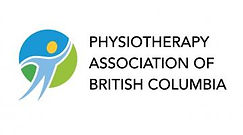Physiotherapy Treatments
Treatments are based on the the individual needs of the patient. Our physiotherapists
will work with you to design a custom treatment plan to help you achieve your goals and will educate you along the way to ensure you are a full participant in your healthy lifestyle.
Physiotherapy can be of benefit to many injuries or conditions. Specific diagnoses or patient presentation can include, but are not limited to:
-
Orthopedic injuries: muscle, joint, tendon, ligament, or bone injuries
-
Neck pain, headaches or migraines
-
Decreased soft tissue flexibility or joint range-of-motion
-
Suspected nerve entrapments: radiating pain, numbness or tingling
-
Post surgically: pain, weakness, or stiffness
-
Scar tissue
-
Multiple injuries or complex injury history
-
Motor vehicle accidents
-
Concussions
WHAT TO EXPECT FROM YOUR VISIT:
INITIAL VISIT
-
Subjective History: Learning about why you are coming in, how your current injury happened, and relevant previous injuries
-
Assessment of the Injury/Area of Concern: Various movements, ranges-of-motion, and special tests to see what causes restrictions or pain
-
Muscle and Structure Testing: Evaluation of supporting structures to find the cause of the problem
-
Will include P-DTR treatment and rehabilitative exercises (*can hyperlink P-DTR to Tonume webpage with information below)
-
Goal setting and treatment planning for your recovery
RETURN VISITS
-
Discussion of changes in function and/or pain since the last visit
-
P-DTR treatment and other manual and assessment techniques
-
Review and/or progression of rehabilitative exercises
Physiotherapy Frequently Asked Questions - from the Physiotherapy Association Website
Q: What is Physiotherapy?
A: Physiotherapy helps people suffering from specific conditions improve their quality of life by enhancing or restoring function to multiple body systems. Physiotherapists, the professionals who provide physiotherapy services, can perform a number of services, which includes promoting optimal mobility; managing activity limitations; improving functional independence and physical performance; rehabilitating injury; and educating patients. For further information on physiotherapy and physiotherapists, visit the Physiotherapy Association of British Columbia website.
Q: What training do Physiotherapists have?
A: With a Masters Degree of Physical Therapy, the study of physiotherapy is anchored in movement sciences and aims to enhance or restore function of multiple body systems. The profession is committed to health, lifestyle and quality of life.
Q: How do Physiotherapists make assessments?
Q: A physiotherapist will assess you using detailed history-taking as well as specific physical tests and measures, such as flexibility or range of motion. He or she will then analyze the assessment findings and use clinical reasoning to establish a diagnosis. Together, you will explore your current abilities and functional needs so the physiotherapist can plan treatments that are consistent with your goals and general health status, and which incorporate approaches and techniques supported by the best evidence available.
Q: What can Physiotherapy treatments involve?
Q: Physiotherapy treatments can include the following:
-
Personalized exercise programs designed to improve your strength, range of motion, and function
-
Massage
-
Joint mobilization and manipulation to reduce pain and stiffness
-
Hot and cold packs and modalities to relieve pain, reduce swelling, speed up the healing process, improve movement and function
-
Airway clearance methods to assist people with breathing difficulties
-
Skin and wound care
-
Management of incontinence including pelvic floor re-education
-
Functional activity and tolerance testing and training
-
Work and occupational re-training and return to work planning
-
Prescription, fabrication and application of assistive, adaptive, supportive and protective devices and equipment
-
Environmental change, focusing on removing barriers to function
Q: Is there extended medical coverage for physiotherapy?
A: Physiotherapy is covered under most extended medical plans and a portion is covered if you are using premium assistance through MSP (see supplementary health care benefits).
For more information on physiotherapy visit the Physiotherapy Association of British Columbia website.

Physiotherapy is covered by most extended health care plans.
Check with your plan and take advantage of this opportunity.

Meet our Physiotherapy Team
Zachary
Hum,
Physiotherapist
Estela
Farias
Physiotherapist


.jpg)
